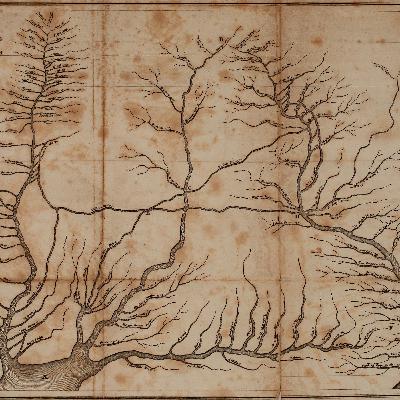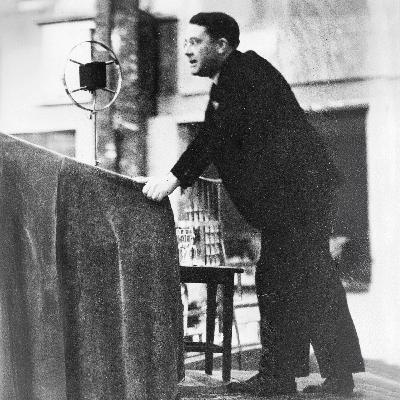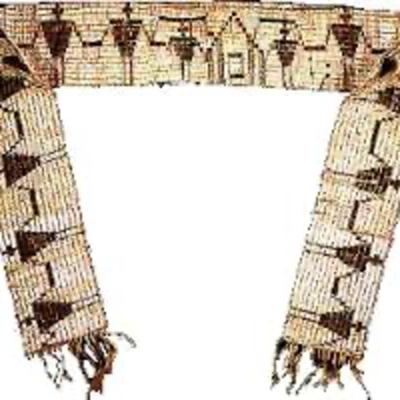Discover Interventions | The Intellectual History Podcast
Interventions | The Intellectual History Podcast

Interventions | The Intellectual History Podcast
Author: Interventions
Subscribed: 276Played: 4,313Subscribe
Share
© Interventions
Description
What do intellectual historians currently investigate? And why is this relevant for us today? These are some of the questions our podcast series, led by graduate students at the University of Cambridge, seeks to explore. It aims to introduce intellectual historians and their work to everyone with an interest in history and politics. Do join in on our conversations!
(The theme song of "Interventions | The Intellectual History Podcast" was created at jukedeck.com)
(The theme song of "Interventions | The Intellectual History Podcast" was created at jukedeck.com)
31 Episodes
Reverse
Sometime in the eighteenth century, a great transformation took place in the language of liberty. Since the days of the Roman Republic, to be free had meant to be independent of the arbitrary will of another. You enjoyed freedom if nobody could impose their will on you without your prior consent. You were free if you were your own master, and you were unfree to the extent that you answered to anyone else. This was the concept of liberty which dominated political discourse in England until the outbreak of the American Revolution and Revolutionary War. How it gave way in the wake of the Declaration of Independence to the idea of freedom as absence of restraint — to the concept of negative liberty — is the question that Quentin Skinner, the doyen of intellectual historians in the English-speaking world, attempts to answer. In doing so, he also questions whether the road that was taken was the right one for a democratic society to take. In order to be free, is it enough that we encounter no obstruction on our way, or is something more, and more fundamental, required?
If you visited Britain around 1700, you’d find hardly a single advocate of the abolition of the transatlantic slave trade. You’d hear the institution of slavery described as a moral evil, but no one would tell you that it could be done away with if only people put their minds to it. Slavery was supported by monarchy, government, church, and public opinion in general. Yet in 1807, the trade in enslaved Africans was abolished throughout the British Empire. How and why this momentous shift in public opinion took place remains a topic of heated debate, with the roles of material interest and lofty idealism proving difficult to disentangle. Join John Coffey, one of the finest historians of religious and political ideas working in Britain today, as he grapples with the question of British slavery’s dramatic, if incomplete, eclipse.
Why is Carl Schmitt one of the most widely read political theorists of the twentieth century? A lifelong antisemite, a petty careerist, a Nazi ideologue who only avoided being tried at Nuremberg because he wasn’t considered important enough, Schmitt was an unlikely candidate for canonical fame. And yet from today’s perspective, few other authors present as many opportunities to think through the struggles of the twentieth century. From the besieged cities of the First World War to the global delusions of the Cold War superpowers, the stuff of Schmitt’s thought both excites and repels, forcing us to face a world in which liberal democracy is the enemy and fool. Join Lars Vinx and Samuel Zeitlin as they travel in time from Schmitt’s early years in Catholic Westphalia to his spectral afterlife in today’s divided world, shedding light on his theories of dictatorship, the political, sovereignty, and law.
In 1686, a French witness spoke openly of a Native American declaration of independence. ‘We have to assume’, he said, ‘that the Iroquois do not accept any master’. Claims such as this were made frequently throughout the history of European colonialism, forming a rich tapestry of indigenous ideas. Although often dismissed by historians as badly documented and politically irrelevant fictions, these ideas helped shape the destiny of peoples and polities across the globe, from New Zealand and New Caledonia to Ontario and Quebec. Join Saliha Belmessous, a leading light in the emerging field of indigenous intellectual history, as she looks at the legacy of the Treaty of Waitangi, visits the insulated offices of Victorian lawyers, and reflects on the interplay of colonial cooperation and violence.
John Locke continues to excite controversy. For American liberals, he is an honorary Founding Father, one of the architects of modern democracy. In their view, as Allan Bloom put it, ‘the whole world is divided into two parts, one of which traces its intellectual lineage back to Locke and the other to Marx’. For his critics on the left, by contrast, he is an apologist for slavery and European imperialism, his thought a reminder that liberalism and empire were born twins. But is either of these views really true? Perhaps if we look at Locke’s practical engagement with English colonialism, a more complicated picture will emerge.
Join Mark Goldie, one of the preeminent historians of seventeenth century political thought, as he sheds light on Locke’s involvement in the transatlantic slave trade, his relationship with England’s American colonies, and his views on empire and enslavement, asking how it was that the so-called father of liberalism could have accepted the absolute subjugation of other human beings.
According to some, Francis Bacon accomplished nothing less than a scientific revolution. Some even say he was the founder of modern science itself. Born into a world where natural magic, astrology, alchemy, and the wisdom of the Ancients were all accepted as authentic sciences, he left behind a body of work expressing a new and strange idea. In this radical vision, humanity was destined to free itself from its mundane misery by investigating nature and discovering its laws. It was a vision of collective action and incremental progress that sustains scientific practice to this day. Yet Bacon was also a deeply paradoxical figure. A lover of humanity and believer in progress, he was also a Machiavellian statesman committed to advancing the interests of the English state, as well as a self-seeking loner who married for money and disinherited his wife.
Richard Serjeantson, Cambridge’s foremost authority on Bacon’s life and legacy, tells us the intellectually exhilarating story of the man who ushered in our modern age of science.
This episode is hosted by Sam Tchorek-Bentall
What lessons can we draw from eighteenth-century thought about the relationship of big and small states? What are the limits of intellectual history? How and why did the Enlightenment end? Richard Whatmore, Professor of Modern History at the University of St Andrews, joins us to discuss these questions and more.
What can the seventeenth century teach us about equality? Why do philosophers construct intellectual traditions and how do we use them? In what ways is political theory an educative endeavour? These are some of the questions we asked Teresa Bejan, Professor of Political Theory at the University of Oxford.
Publications mentioned in this episode include:
First Among Equals: The Practice and Theory of Early Modern Equality. Under contract with Harvard University Press.
Mere Civility: Disagreement and the Limits of Toleration (Harvard University Press, 2017)
“The Historical Rawls,” Special Forum for Modern Intellectual History, co-edited with Sophie Smith and Annette Zimmermann (2021).
“Rawls’s Teaching and the ‘Tradition’ of Political Philosophy,” Modern Intellectual History (2021).
“‘Since all the World is Mad, Why should not I be so?’ Equality, Hierarchy, and Ambition in the Thought of Mary Astell.” Political Theory (online first May 2019).
“The Two Clashing Meanings of Free Speech,” The Atlantic (2 Dec. 2017).
“Teaching the Leviathan: Thomas Hobbes on Education,” Oxford Review of Education 36:5 (2010).
How can we understand thinkers in their own terms? Why is such an approach particularly fruitful to understanding Hume? What can philosophy and the history of political thought learn from one another? What can Hobbes's conception of the people teach us about populism? James Harris, professor of the history of philosophy at the University of St Andrews, joins us to discuss these questions and more in this episode.
This episode's hosts: Zack Rauwald & Elena Yi-Jia Zeng.
What is the relationship between war and representation? Why can't we understand the French Revolution without thinking about the political management of public debt? And what does the future have to do with how we write history? These are some of the questions answered by Michael Sonenscher, Fellow of King's College, University of Cambridge.
This episode's hosts: Michael Kretowicz & Charlotte Johann.
How does skepticism serve history? What lessons does Hegel hold for the modern historian? Why is an understanding of historical consciousness so important across the humanities? These are some of the questions we asked Richard Bourke, Professor of the History of Political Thought at the University of Cambridge.
Publications mentioned in this episode include:
István Hont and Michael Ignatieff, Wealth and Virtue: The Shaping of Political Economy in the Scottish Enlightenment (CUP: 1983)
Richard Bourke, Peace in Ireland: The War of Ideas (Pimlico: 2003)
Richard Bourke, Empire and Revolution: The Political Life of Edmund Burke (Princeton University Press: 2015)
Richard Bourke and Quentin Skinner, eds. History in the Humanities and Social Sciences (CUP: 2002)
Richard Bourke, Hegel’s World Revolutions (Princeton University Press: forthcoming, 2023)
What makes the seventeenth century such a fascinating period in the history of philosophy? In what ways does Spinoza speak to contemporary philosophical problems? And in what sense is philosophy an inherently historical discipline? These are some of the questions that we asked Susan James, Professor of Philosophy at Birkbeck College London.
Some books and papers mentioned in this episode are:
- Augustine of Hippo: A Biography by Peter Brown
- The Blazing World by Siri Hustvedt
- Spinoza on philosophy, religion, and politics: the Theologico-political treatise by Susan James
- 'Responding Emotionally to Fiction: A Spinozist Approach' by Susan James
- Early Modern French Thought by Michael Moriarty
What can decolonisation in twentieth century Africa tell us about the history of political thought? How might African intellectual history shed light on new methods and modes of inquiry? And what does it mean to ‘decolonise’ intellectual history? Emma Hunter, professor of global and African history at the University of Edinburgh and the 2018/19 Quentin Skinner Fellow, joins us to discuss these questions and more in this episode.
What can history contribute to the pursuits of contemporary political theory? What does the notion of the Anthropocene have to do with the history of political thought? And what exactly is the legacy of the political thought produced during the First World War? These are some of the questions discussed in this episode with Duncan Kelly, professor of political thought and intellectual history at the University of Cambridge, and the author of Politics and the Anthropocene (2019).
What is the place of history in the study of law? How do historians of international law conceive of emergent actors on the global stage? To what extent do legal histories shape the expectations and commitments of today’s international institutions? Dr Megan Donaldson, recently appointed to a lectureship in Public International Law at University College London, addresses these questions and shares her experience of a complex intersection between law, legal history and the history of political thought.
#Globalgovernance #legalhistory #internationallaw #deliberativedemocracy #publicity #interwarperiod
How does an attention to gender change our understanding of Renaissance political texts and the history of ideas more broadly? How can we challenge the traditional divide between the political public and the apolitical private spheres? And in what ways is re-evaluating the conceptual relationship between disadvantaged groups in the early modern period fruitful for our own times? We spoke to Anna Becker, from the Centre of Privacy Studies at the University of Copenhagen, to discuss these questions and more.
#gender #Renaissance #household #Machiavelli #Bodin #power #sovereignty
Which ideas and values shaped the relationship between humans and their environment in early modern Europe? Why did authors become interested in translating their own work, and what ramifications could this have? How can the ways in which authors were read, copied, and censored in the past enrich our understanding of their work? These are some of the questions we discuss with Dr Sara Miglietti, Senior Lecturer in Cultural and Intellectual History at the Warburg Institute in London.
How do we write the history of both the theory and the practice of socialism and welfarism? How do historians negotiate the relationship between their politics and their scholarship? And in what way is Karl Marx's political thinking relevant for us today? Gareth Stedman Jones, Professor of the History of Ideas at Queen Mary, University of London, talked to us about the history of poverty in nineteenth century Europe, his recent biography of Karl Marx, and what Dickens can teach us about writing history.
#welfare state #poverty #socialism #nineteenth century #Marx #Marxism #New Left
How does the world of ideas impact our understanding of political practice? What notions of freedom shaped the Roman republic? And how can Roman understandings of rhetoric empower our thinking in the twenty first century?
These are some of the questions we discussed with Dr Valentina Arena, Reader in Roman History at University College London.
What's the relationship between ideas and life experiences, politics and scholarship? How does our methodological self-consciousness evolve? What is the interaction between different schools of intellectual history?
Martin Jay reflects on his life and career as an intellectual historian.
Comments
 United States
United States








